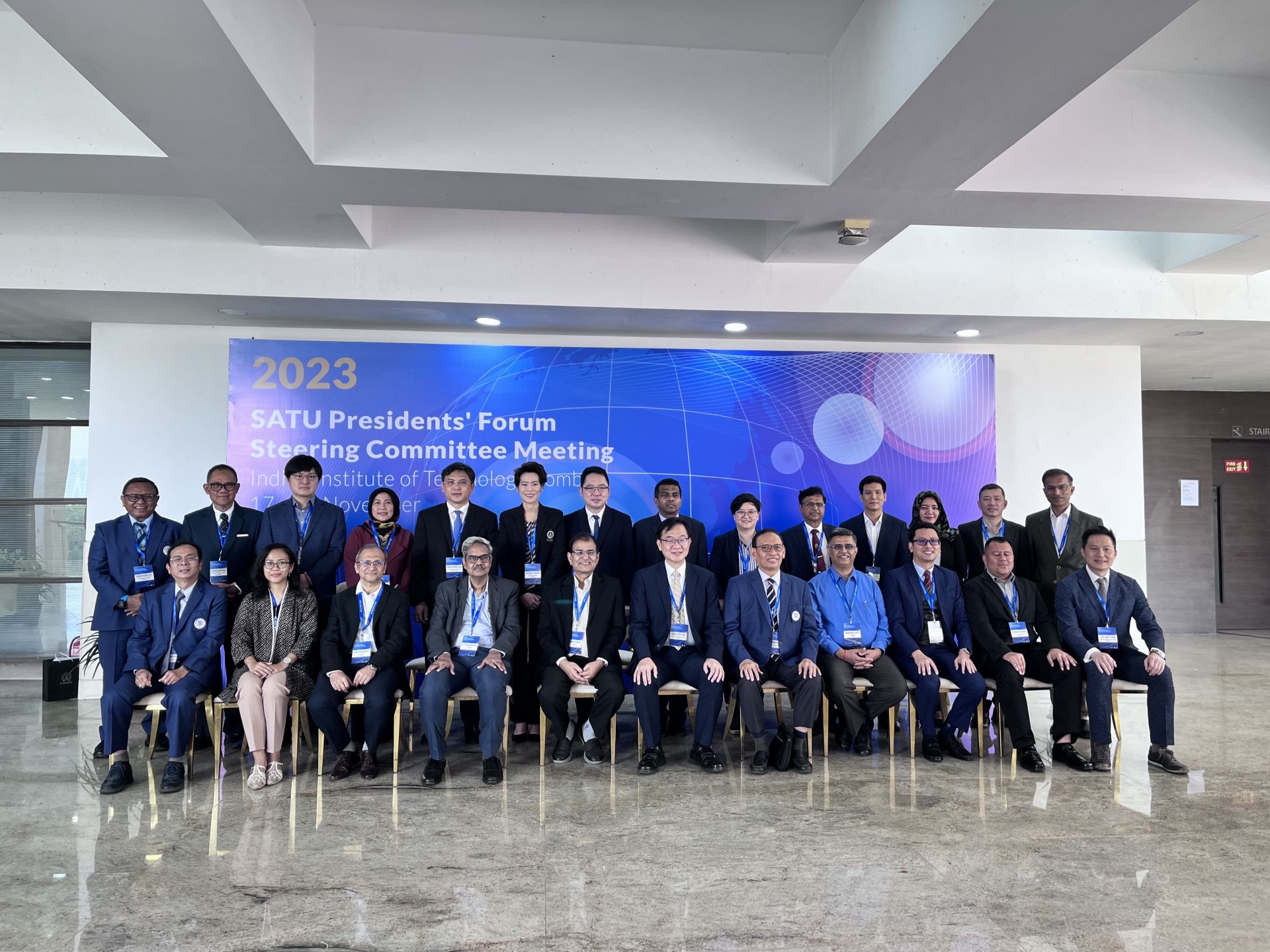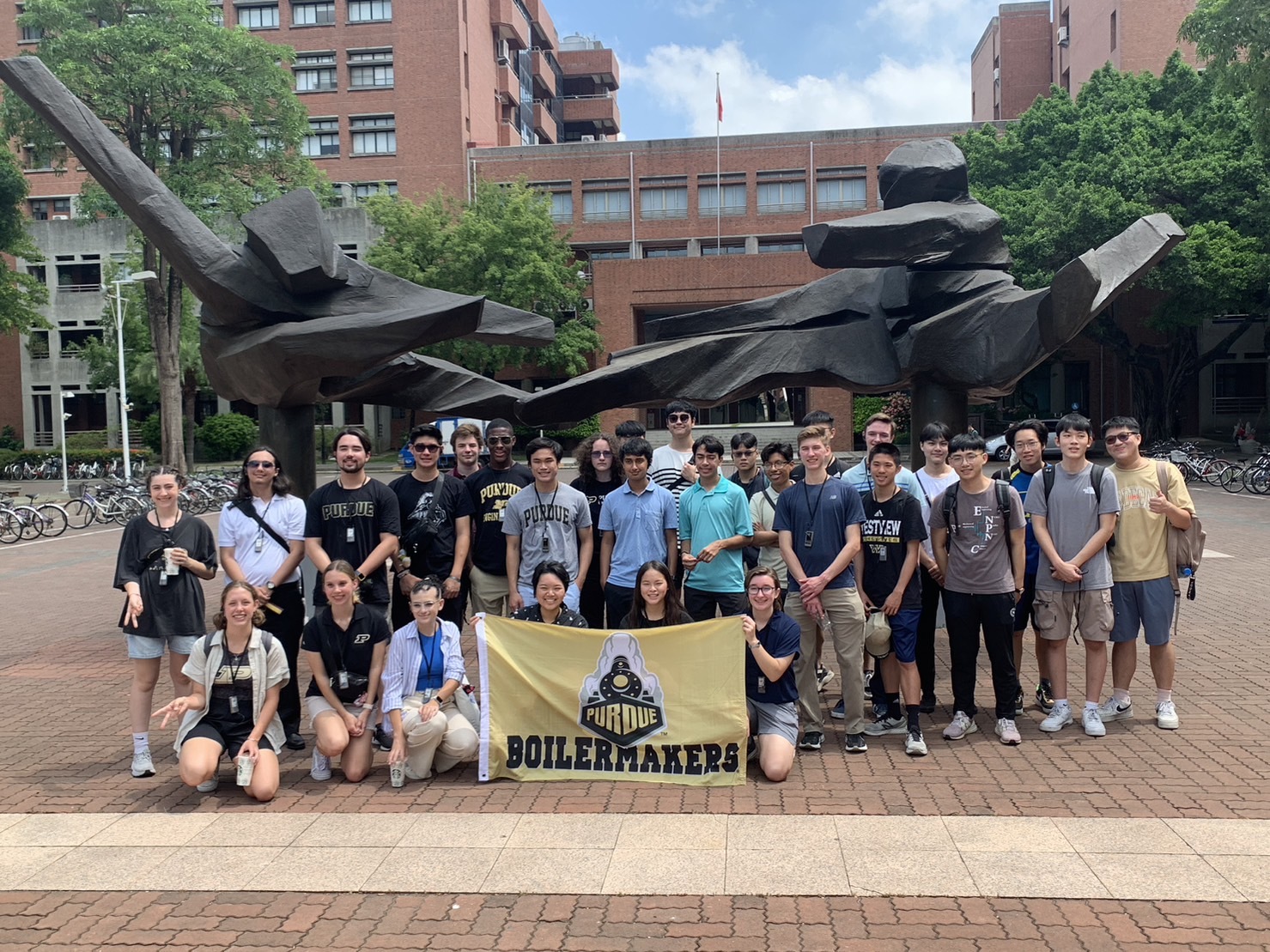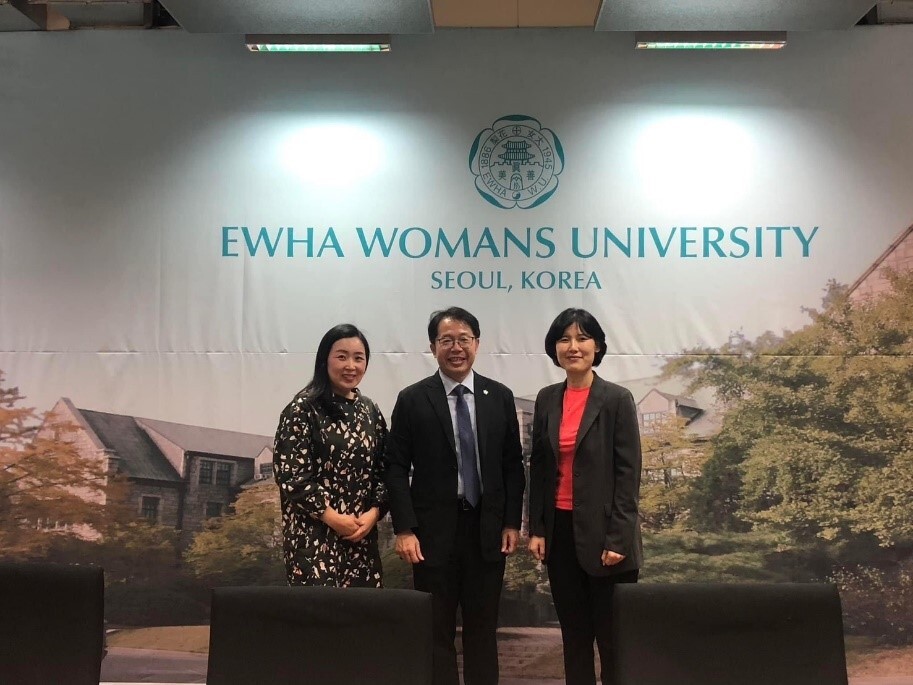SDG17
NCKU Taiwan BT&D² Team Hosts "Interdisciplinary and AI-Directed Innovative Solutions for Healthcare International Conference"
The 2nd Asia Pacific Biosafety Association (APBA) International Conference, themed "Taiwan-New Southbound Countries Interdisciplinary and AI-Directed Innovative Solutions for Healthcare," was held from December 19 to 22 at NCKU. Over 200 experts and scholars in health, medicine, and AI from Taiwan and the Asia-Pacific region participated in the four-day event, facilitating diverse interdisciplinary and international exchanges. The event was organized by NCKU’s Taiwan BT&D² Team and the APBA, aiming to strengthen collaboration between Taiwan and ASEAN/South Asia countries while advancing the development and internationalization of Taiwan's academia, industry, research, and medical sectors.
The conference's opening ceremony on December 20 was attended by NCKU Executive Vice President Woei-Jer Chuang, Vice President for Research and Development Chuan-Pu Liu, Vice President for International Affairs Sun-Yuan Hsieh, and Dean of the College of Science Chin-Chun Tsai. They expressed gratitude to attendees for supporting this significant event and acknowledged the contributions of the Taiwan BT&D² Team and the APBA. During the ceremony, appreciation plaques were awarded to distinguished speakers who have made significant contributions to research and development in Taiwan and the Asia-Pacific region, including representatives from the University of Malaya, Indian Institutes of Technology, Mahidol University, Nanyang Technological University, Academia Sinica, National Health Research Institutes, National Taiwan University, National Tsing-Hua University, NCKU, and industry experts.
Executive Vice President Woei-Jer Chuang emphasized in his speech that promoting health and well-being for all ages is one of the United Nations' 17 Sustainable Development Goals. NCKU is committed to leveraging its diverse expertise in science, technology, and humanities to advance sustainable development in Taiwan and the Asia-Pacific region. He expressed delight in seeing the APBA and the Taiwan BT&D² Team fostering collaborations between talent and resources from Taiwan and ASEAN/South Asia countries to drive sustainability in the region.
Vice President for International Affairs Sun-Yuan Hsieh highlighted that NCKU not only fulfills its social responsibility as a university but also aims to enhance its contributions to the international community. He noted that the APBA International Conference serves as a collaborative platform for NCKU to engage with top domestic and international institutions in healthcare-related fields, offering valuable opportunities for all participants.
Vice President for Research and Development Chuan-Pu Liu remarked that research and development thrive on sharing, innovation, and collaboration. The conference facilitates creative synergy and enhances competitiveness while fostering new ideas. He also encouraged attendees to explore Tainan, a city rich in history and culture, during the event.
Dean Chin-Chun Tsai of NCKU's College of Science noted that Tainan, where NCKU is located, is a city with a profound cultural heritage and a hub for technology, featuring science parks and green energy demonstration sites in the Shalun area. He expressed hope for a successful conference that further strengthens industry-academia collaborations in Taiwan and the Asia-Pacific region.
Conference Chair and Associate Professor Hsien-Tai Chiu from NCKU’s Department of Chemistry introduced the Taiwan BT&D² Team and its APBA alliance's mission and vision during the opening ceremony. He elaborated on the team’s "BT&D² Platform for Drug Development and Research," an AI-driven system integrating chemical, medical, and clinical data to accurately predict drug efficacy and applications. The system reduces development costs by 90% and timelines by 60%, achieving precision and preventive medicine through foundational and clinical research. The team collaborates with over 20 international institutions to develop drugs and health products for chronic diseases, aging, metabolic syndromes, and more.
The first APBA International Conference in 2023 focused on AI-assisted drug development and precision medicine and was conducted online. This year, the conference adopted an in-person format with collaborative forums and industry-academia exhibitions, featuring a packed agenda to maximize opportunities for exchange and interaction among scholars and experts.
Associate Professor Hsien-Tai Chiu explained that this year’s theme emphasized the promotion of innovative healthcare solutions, targeting practical applications in clinical and preventive care. Key scientific topics include medical innovation, new drug development, AI integration, traditional medicine modernization, cancer research, small molecule drugs, and healthcare product development. The event featured over 10 specialized forums and lectures exploring subjects like AI-driven drug research, small molecule therapeutics, biomedical studies, traditional medicine applications, and AI in health and beauty products.
To encourage collaboration among domestic and international scholars and industry professionals, the conference also hosted multiple "collaborative meetings," providing opportunities for detailed discussions on potential interdisciplinary and international research projects, talent development, and exchanges.
The conference aligned with Taiwan’s New Southbound Policy to promote academic, industrial, and economic exchanges with Southeast and South Asian countries. Associate Professor Hsien-Tai Chiu revealed that participating experts from the Asia-Pacific region brought substantial academic expertise, contributing to the advancement of AI and healthcare standards. NCKU hopes the conference will showcase Taiwan’s strengths in technology, education, and enterprise, enhancing its influence and competitiveness in the region.
The conference's opening ceremony on December 20 was attended by NCKU Executive Vice President Woei-Jer Chuang, Vice President for Research and Development Chuan-Pu Liu, Vice President for International Affairs Sun-Yuan Hsieh, and Dean of the College of Science Chin-Chun Tsai. They expressed gratitude to attendees for supporting this significant event and acknowledged the contributions of the Taiwan BT&D² Team and the APBA. During the ceremony, appreciation plaques were awarded to distinguished speakers who have made significant contributions to research and development in Taiwan and the Asia-Pacific region, including representatives from the University of Malaya, Indian Institutes of Technology, Mahidol University, Nanyang Technological University, Academia Sinica, National Health Research Institutes, National Taiwan University, National Tsing-Hua University, NCKU, and industry experts.
Executive Vice President Woei-Jer Chuang emphasized in his speech that promoting health and well-being for all ages is one of the United Nations' 17 Sustainable Development Goals. NCKU is committed to leveraging its diverse expertise in science, technology, and humanities to advance sustainable development in Taiwan and the Asia-Pacific region. He expressed delight in seeing the APBA and the Taiwan BT&D² Team fostering collaborations between talent and resources from Taiwan and ASEAN/South Asia countries to drive sustainability in the region.
Vice President for International Affairs Sun-Yuan Hsieh highlighted that NCKU not only fulfills its social responsibility as a university but also aims to enhance its contributions to the international community. He noted that the APBA International Conference serves as a collaborative platform for NCKU to engage with top domestic and international institutions in healthcare-related fields, offering valuable opportunities for all participants.
Vice President for Research and Development Chuan-Pu Liu remarked that research and development thrive on sharing, innovation, and collaboration. The conference facilitates creative synergy and enhances competitiveness while fostering new ideas. He also encouraged attendees to explore Tainan, a city rich in history and culture, during the event.
Dean Chin-Chun Tsai of NCKU's College of Science noted that Tainan, where NCKU is located, is a city with a profound cultural heritage and a hub for technology, featuring science parks and green energy demonstration sites in the Shalun area. He expressed hope for a successful conference that further strengthens industry-academia collaborations in Taiwan and the Asia-Pacific region.
Conference Chair and Associate Professor Hsien-Tai Chiu from NCKU’s Department of Chemistry introduced the Taiwan BT&D² Team and its APBA alliance's mission and vision during the opening ceremony. He elaborated on the team’s "BT&D² Platform for Drug Development and Research," an AI-driven system integrating chemical, medical, and clinical data to accurately predict drug efficacy and applications. The system reduces development costs by 90% and timelines by 60%, achieving precision and preventive medicine through foundational and clinical research. The team collaborates with over 20 international institutions to develop drugs and health products for chronic diseases, aging, metabolic syndromes, and more.
The first APBA International Conference in 2023 focused on AI-assisted drug development and precision medicine and was conducted online. This year, the conference adopted an in-person format with collaborative forums and industry-academia exhibitions, featuring a packed agenda to maximize opportunities for exchange and interaction among scholars and experts.
Associate Professor Hsien-Tai Chiu explained that this year’s theme emphasized the promotion of innovative healthcare solutions, targeting practical applications in clinical and preventive care. Key scientific topics include medical innovation, new drug development, AI integration, traditional medicine modernization, cancer research, small molecule drugs, and healthcare product development. The event featured over 10 specialized forums and lectures exploring subjects like AI-driven drug research, small molecule therapeutics, biomedical studies, traditional medicine applications, and AI in health and beauty products.
To encourage collaboration among domestic and international scholars and industry professionals, the conference also hosted multiple "collaborative meetings," providing opportunities for detailed discussions on potential interdisciplinary and international research projects, talent development, and exchanges.
The conference aligned with Taiwan’s New Southbound Policy to promote academic, industrial, and economic exchanges with Southeast and South Asian countries. Associate Professor Hsien-Tai Chiu revealed that participating experts from the Asia-Pacific region brought substantial academic expertise, contributing to the advancement of AI and healthcare standards. NCKU hopes the conference will showcase Taiwan’s strengths in technology, education, and enterprise, enhancing its influence and competitiveness in the region.
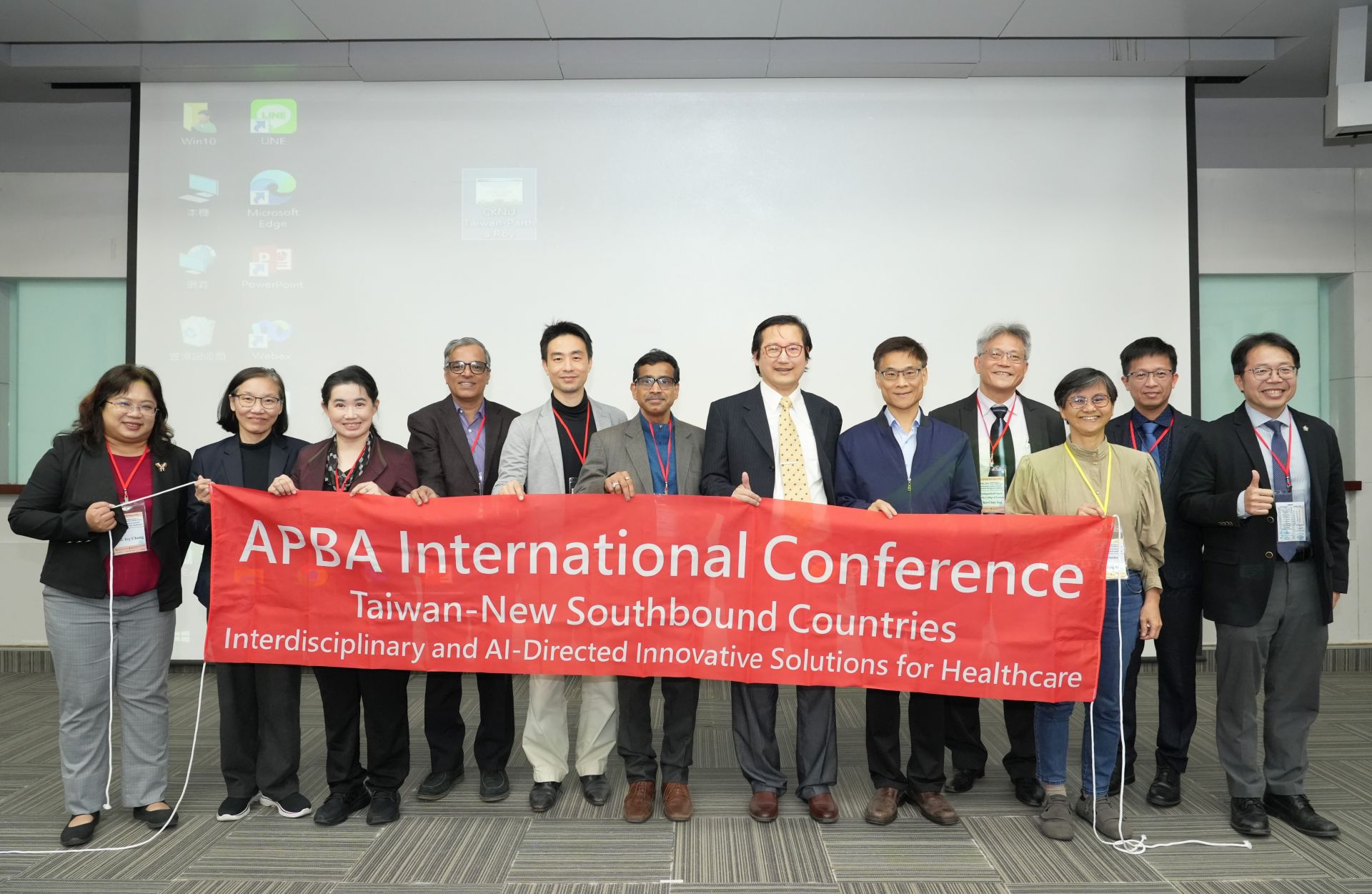
Group photo of dignitaries at the conference opening ceremony.
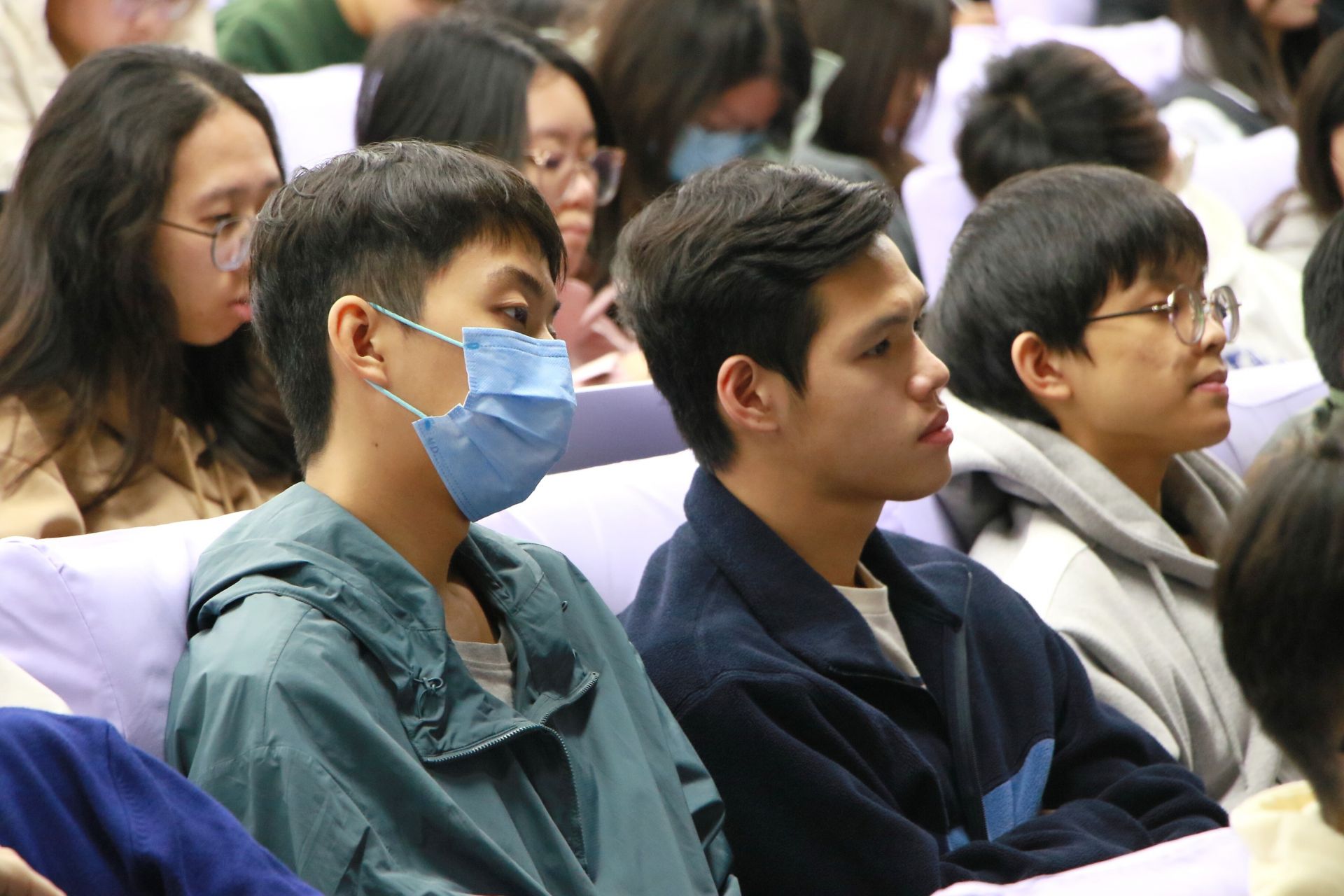
Attendees attentively listening to a presentation during the conference.
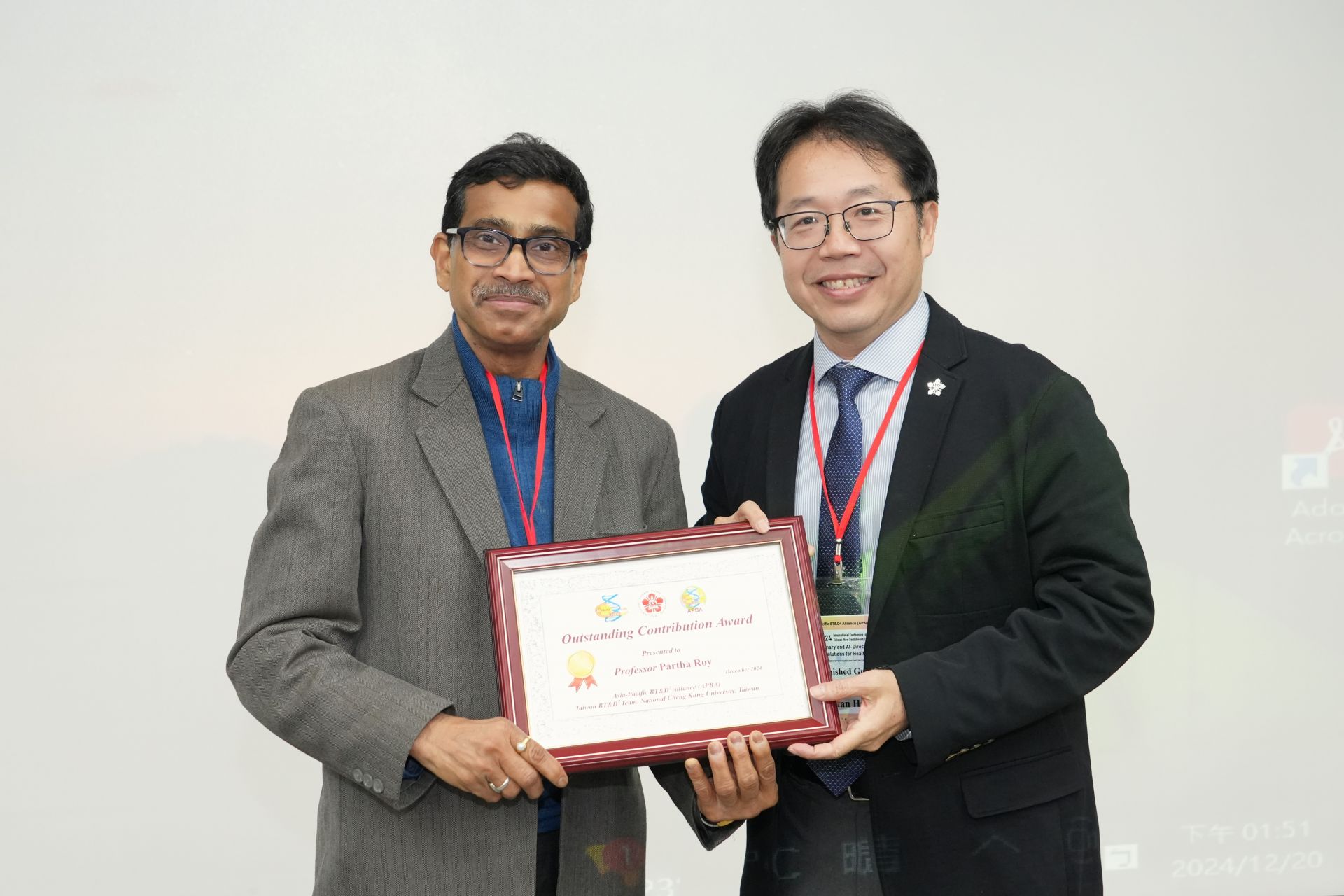
NCKU Vice President for International Affairs Sun-Yuan Hsieh presenting a plaque of appreciation to a distinguished speaker.
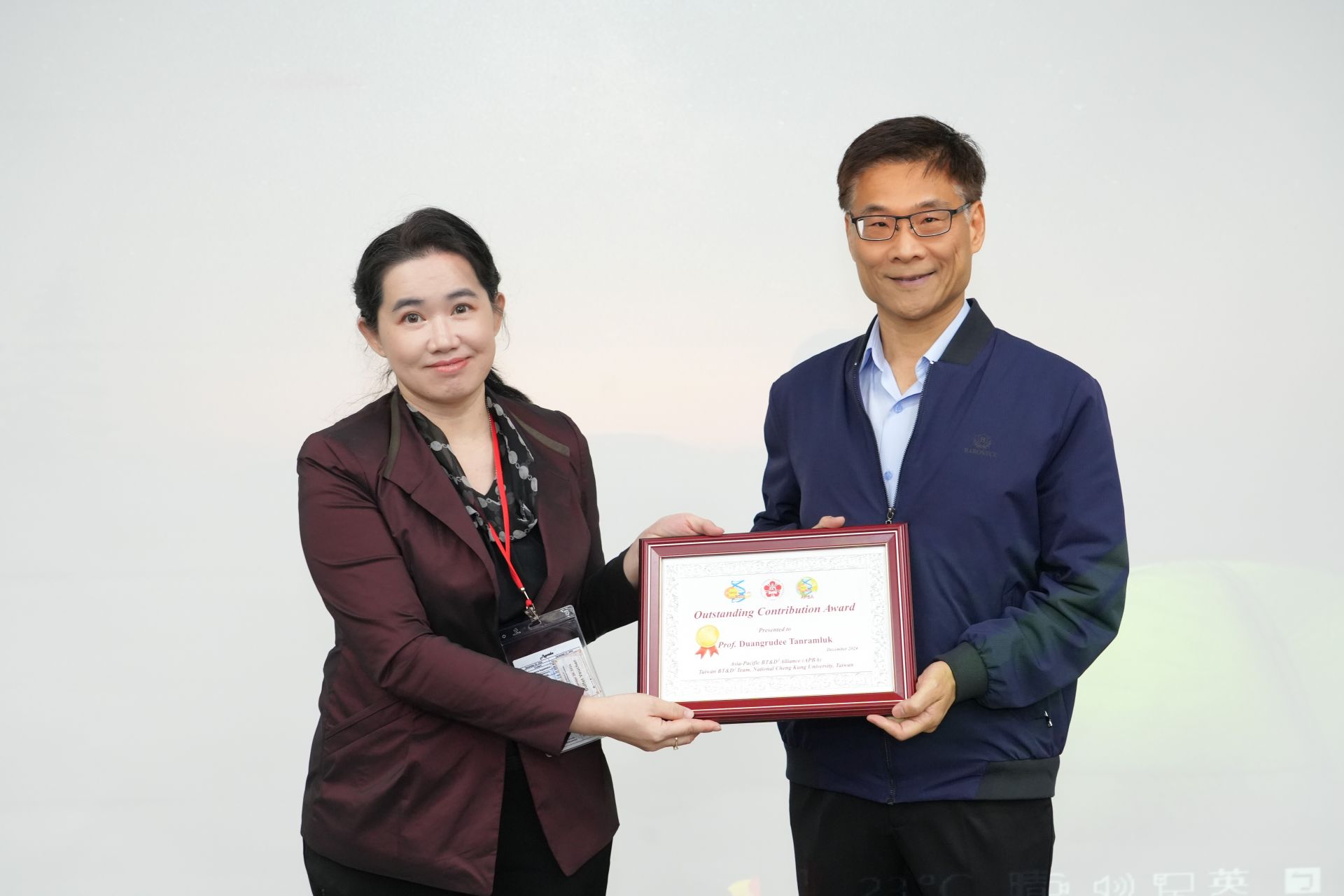
NCKU Vice President for Research and Development Chuan-Pu Liu presenting a plaque of appreciation.
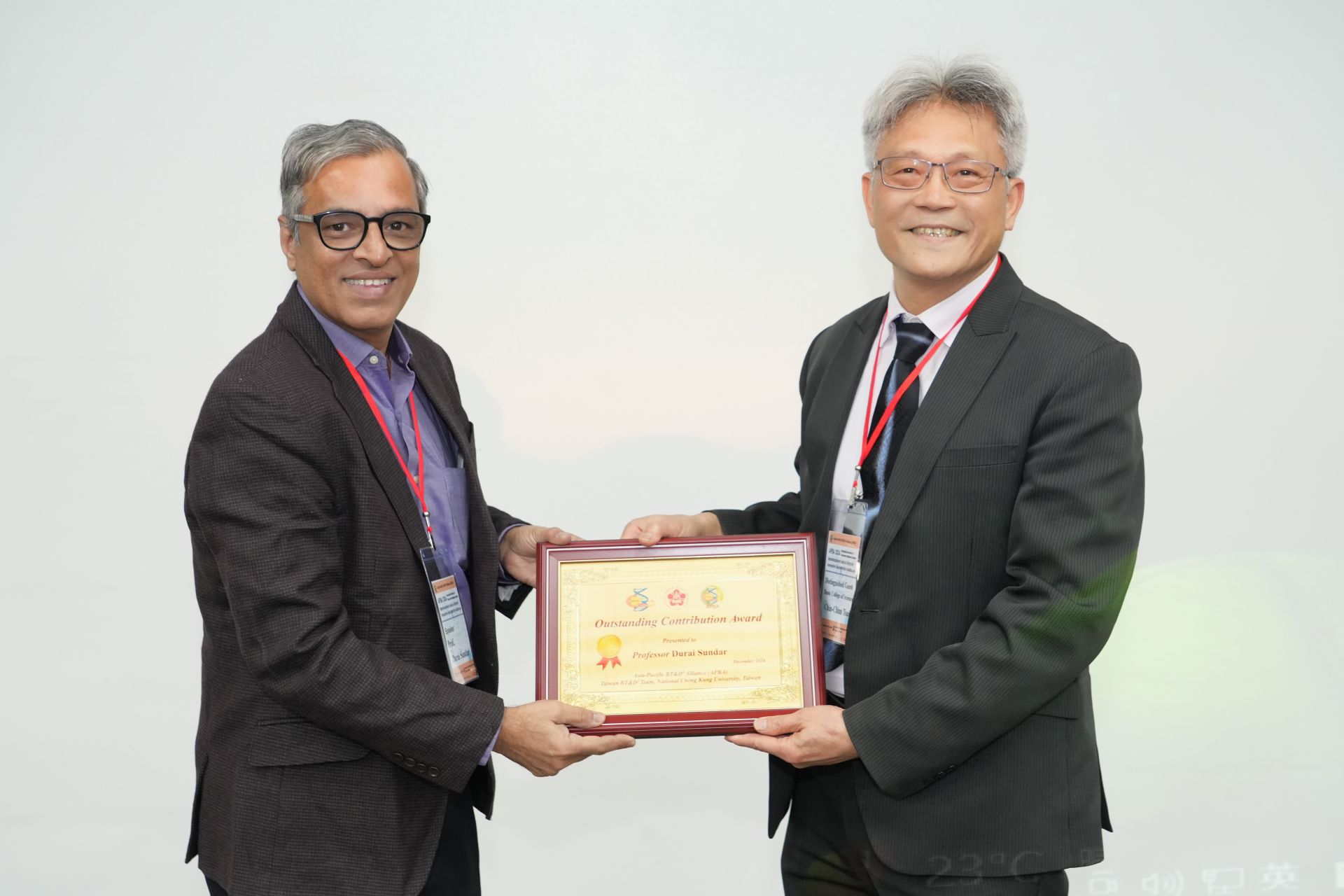
NCKU Dean of the College of Science Chin-Chun Tsai presenting a plaque of appreciation.






